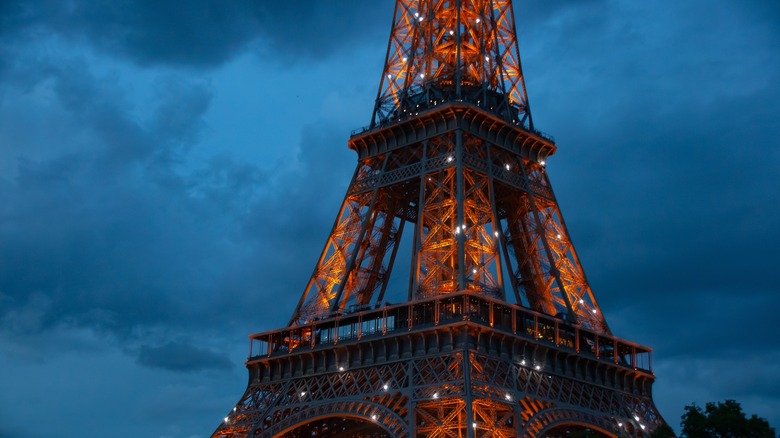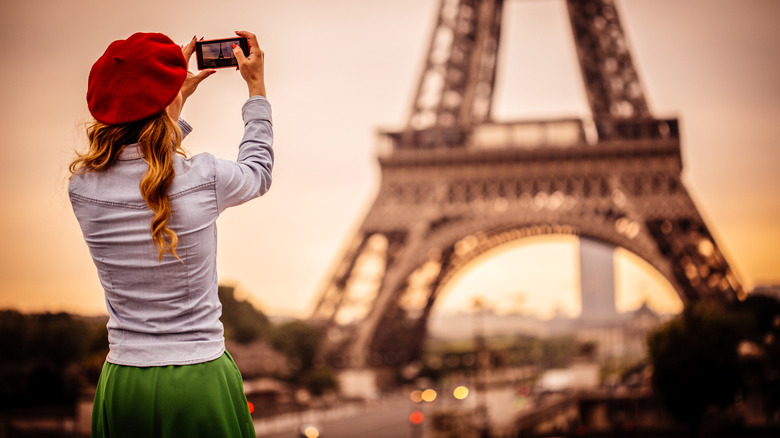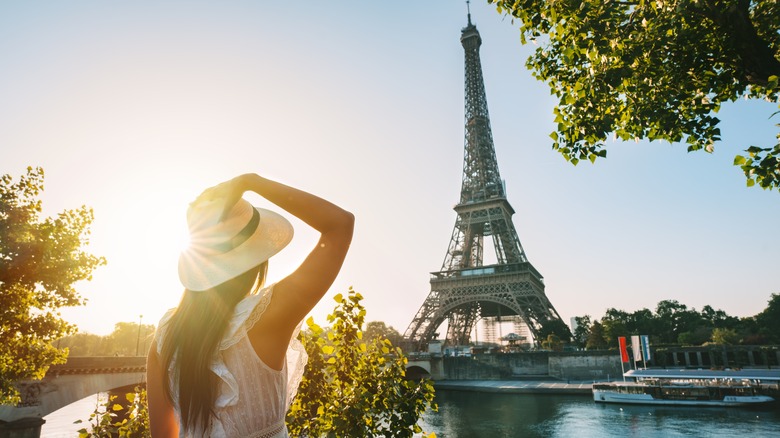Destinations Europe
Nicole Cord-Cruz
Seven million people — that’s approximately the average number of tourists paying a visit to The Eiffel Tower in Paris each year. And in the millions of people making a trip to the famous French landmark annually, it may not be a reach to assume that a good chunk of them snap photos of the majestic structure, too.
The Eiffel Tower is easily one of the most famous tourist destinations in the world. Erected in 1889, primarily to celebrate the 100th anniversary of the French Revolution, the Parisian landmark is an engineering and architectural marvel, having been built in a record time of a little over two years using purely puddle iron. Gustave Eiffel, whose company designed and constructed the tower, described it as a “monument [that] will be built as an expression of France’s gratitude” when he was pitching it to the Société des Ingénieurs Civils. Interestingly, the initial plan was to demolish the landmark after 20 years, but since the Eiffel Tower had proved its usefulness to the French government and reached global popularity, it had cemented its place in Paris, perhaps for all of eternity.
While the Eiffel Tower is already magnificent as it is, it’s during the night when it truly shines — literally. The landmark is outfitted with 20,000 bulbs that glimmer in the dark. It’s a sight to see, but only for your eyes and not the lenses of your camera. The tower’s lights are protected by copyright, so you have to be careful about sharing your snaps of it taken at night.
The Eiffel Tower lights are copyrighted

Matt LaVigne/Shutterstock
Taking as many pictures of the Eiffel Tower as you wish, whether in the day or night, is not illegal per se, but posting photos of the landmark when its lights are turned on online is where it gets dicey. Apparently, European copyright law covers buildings and monuments, so as long as the copyright is in effect, they are not wholly for public consumption, and per Snopes, photos of copyrighted structures cannot be sold or posted on social media. Gustave Eiffel initially owned the rights to the famous tower, but since it lapsed in 1993, seven decades after his death, the landmark became free for all.
The same can’t be said for the lights surrounding it. The light display, designed by engineer Pierre Bideau, was only installed in 1985, so as long as he’s living, and for many years after he’s gone, the sparkling version of the Eiffel Tower remains copyrighted. “The duration of the protection is equal [to] 70 years after the death of the artist,” Baptiste Laparlière, who works for Societe d’exploitation de la Tour Eiffel (SETE), explained to Politico. “Pierre Bideau is alive, so we don’t have a deadline for now.”
Then again, SETE clarified on the Eiffel Tower website that sharing pictures of the tower at night is not prohibited for most people. The rule apparently only applies to professionals wishing to distribute their work commercially. Still, it’s better to err on the side of caution, as rules change at any time.
What happens if you get caught?

Aleksandarnakic/Getty Images
The good news (kind of) is the rule is not strictly enforced, and according to Half as Interesting, no one has landed in court for violating it — yet. Since the French government hasn’t punished anyone, and because trawling through millions of existing photos of the illuminated Eiffel Tower, and then going after violators is simply too laborious and costly for SETE — or anyone, for that matter — it’s hard to tell what would happen if the courts suddenly wake up one day and decide to hold an amateur photographer accountable for taking pictures of the landmark at night.
If you classify as a professional, however, and intend to showcase your work outside of personal use, it’s best to ask for permission from SETE, and perhaps even pay a fee should they impose any, to cover your bases. And if you’re someone who simply wants to share your snaps on Instagram, it’s probably unreasonable to think that you’ll end up behind bars. But just to be safe, you may want to add the acknowledgment “© Tour Eiffel- Illuminations Pierre Bideau” in the caption, so you can have peace of mind and sleep soundly at night after you hit post.

